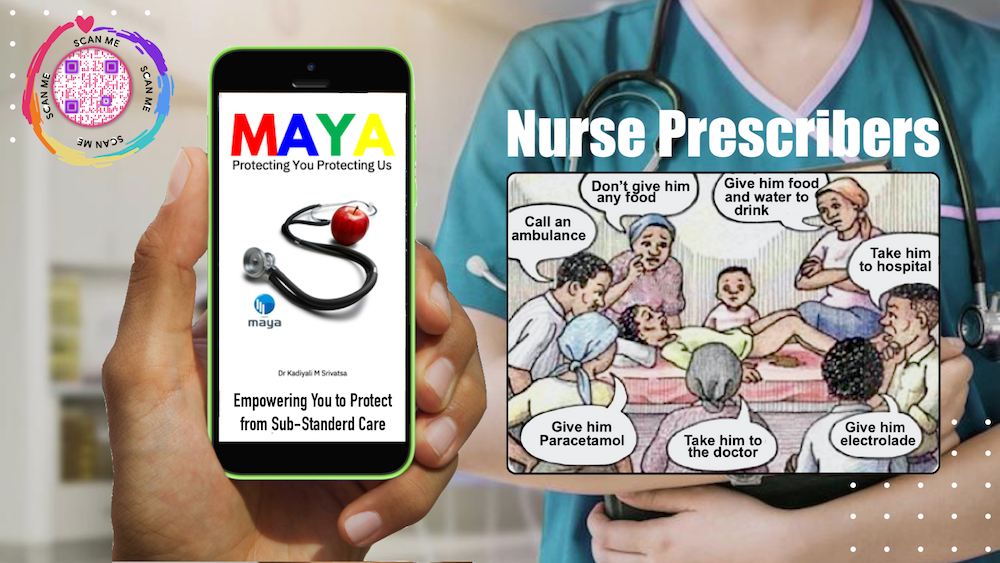How Understanding Your Options Can Lead to Better Health
Making informed decisions about our health is one of the most empowering steps we can take. An informed decision means choosing based on understanding your symptoms, knowing the options available, and being able to ask meaningful questions. Too often, people make health decisions based on guesswork or simply because "the doctor knows best," without realizing that they have an active role in understanding their care. This article explains the importance of informed decision-making, using examples to show how it can help you avoid unnecessary treatments, reduce hospital visits, and take control of your health with the support of tools like Dr. Maya.
What Does "Informed Decision" Mean?
An informed decision is one where you weigh the information about your health, ask questions, and understand the options available. Instead of merely following orders, you actively participate in the decision-making process, ensuring that the treatment aligns with your values, lifestyle, and goals.
For example, imagine you’re experiencing persistent headaches. Rather than jumping to the assumption that it’s something severe and requesting a scan immediately, an informed decision would involve:
- Identifying Patterns: When do the headaches occur? Are they triggered by certain foods, stress, or lack of sleep?
- Exploring Common Causes: Understanding that headaches can often be caused by dehydration, eye strain, or even caffeine withdrawal.
- Evaluating Treatment Options: Knowing that lifestyle changes, hydration, or over-the-counter remedies can often help without needing invasive procedures or tests.
By asking Dr. Maya about your symptoms first, you can gain a preliminary understanding that may guide you to practical steps, rather than assuming the worst or seeking an immediate, expensive intervention.
Informed Decision vs. Guesswork: A Case Scenario
Consider two patients experiencing chest discomfort. Both feel anxious and worry it might be a heart issue.
- Patient A (Guesswork Approach): Patient A immediately heads to the emergency room, fearing the worst. The doctor orders a series of tests, including an ECG and blood tests, which ultimately reveal no heart problems. The issue turns out to be acid reflux—a common condition that can often be managed with diet changes and medications. Patient A leaves relieved but has also incurred high costs and unnecessary stress.
- Patient B (Informed Decision Approach): Patient B first asks Dr. Maya about their symptoms. Through a few guided questions, Dr. Maya suggests the possibility of acid reflux, as the discomfort occurs mostly after eating certain foods. Armed with this information, Patient B tries lifestyle adjustments and antacids before seeking medical help. When they do see a doctor, they can discuss the possibility of acid reflux with confidence, saving themselves time, anxiety, and the financial burden of unnecessary tests.
This example illustrates the importance of informed decision-making. By understanding potential causes and asking the right questions, Patient B avoided an emergency visit, unnecessary tests, and stress, all by approaching their symptoms thoughtfully.
Why Guesswork Often Leads to Unnecessary Treatment
When patients make healthcare choices based on fear or assumptions, they are essentially handing over their free will and becoming passive participants. Without understanding their options, they rely on healthcare professionals to make all the decisions, sometimes leading to tests and treatments they don’t need. This can create a cycle where people make frequent hospital visits and become increasingly dependent on medical intervention, even for issues they might manage on their own.
For instance, a patient who experiences occasional stomach discomfort might assume they need regular scans or specialist visits. But stomach discomfort can often be managed with diet changes, hydration, and stress reduction. A pattern of guesswork can lead to excessive healthcare costs, prolonged discomfort, and the risk of medical interventions that aren’t necessary.
How Dr. Maya Can Support Informed Decision-Making
Dr. Maya is designed to empower you by offering a guided understanding of your symptoms, allowing you to approach healthcare from an informed place. The app helps you explore potential causes based on your symptoms, guiding you toward practical next steps. Rather than simply directing you to a hospital or clinic, Dr. Maya provides insights and tools to help you decide when professional care is necessary and when you can take initial steps on your own.
For example, if you’re experiencing a sore throat, Dr. Maya might ask about additional symptoms (like fever or congestion) and advise you on possible self-care options if it seems like a minor issue. However, if Dr. Maya detects signs that could suggest a more serious infection, the app will prompt you to seek medical care. This preliminary assessment helps you avoid unnecessary visits while ensuring that you don’t overlook significant symptoms.
Questions to Ask for an Informed Decision
Being informed means asking the right questions before making a choice about your health. Here are some questions to ask Dr. Maya or your healthcare provider:
- What could be the likely causes of my symptoms?
- Understanding possible causes can help you recognize patterns and decide if self-care is appropriate.
- What lifestyle changes could help manage these symptoms?
- Many conditions improve with lifestyle adjustments, like changes in diet, sleep, or exercise.
- Are there signs that would indicate I need to see a doctor?
- Knowing when symptoms might indicate a serious issue allows you to seek care proactively rather than reactively.
- Are there alternative treatments or self-care methods?
- This helps you understand non-invasive options and gives you a sense of control over your health.
- What are the potential side effects of a recommended treatment?
- Asking about side effects can help you weigh the risks and benefits of a treatment and consider alternatives.
By understanding these questions, you’re not only more informed but also more empowered. You reduce the need for unnecessary healthcare visits and begin managing your health in a balanced way.
The Benefits of Informed Decision-Making
When you approach healthcare from an informed perspective, you’re not only taking control of your health but also supporting a healthier, more efficient healthcare system. Informed decisions can:
- Reduce Costs: By avoiding unnecessary tests and treatments, you save money and make healthcare more sustainable.
- Reduce Anxiety: Knowing your options and understanding potential causes can reduce fear and stress.
- Improve Health Outcomes: With an informed approach, you are more likely to choose effective, appropriate treatments.
- Promote Self-Reliance: Making informed choices helps you rely on yourself, making you less dependent on the healthcare system.
Take Control of Your Health with Informed Choices
Informed decision-making is about taking responsibility for your health and using available tools to make thoughtful choices. Rather than surrendering your free will, you become an active participant in your own care, reducing unnecessary hospital visits and building a foundation of health based on understanding and self-awareness. Dr. Maya is here to support you on this journey, offering guidance and insight to help you make empowered, confident decisions about your health.
By making informed choices, you reclaim control over your health, ensuring that your care is thoughtful, effective, and aligned with your personal goals for wellness.

